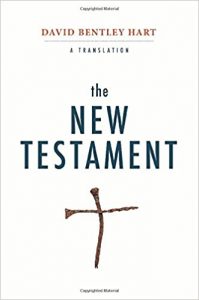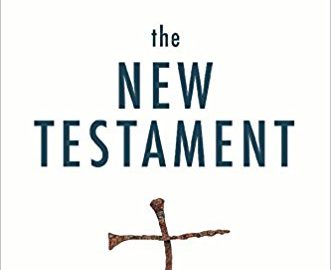
For a long time few options have been available for those who wanted an alternative to the often dogmatically laden Bible translations commonly available in English (and many other languages)
In his new as-literal-as-it-gets translation of the New Testament, Orthodox scholar David Bentley Hart, seeks to remedy this by translating “as if no doctrine were given”. The result is a version of the New Testament at odds with great portions of traditional Protestant theology.
The translation also contains a nice introduction and a comprehensive post-script where Hart explains some of his more controversial translation choices.
Hart opts for translating the Greek words aion and aionion, traditionally translated as ‘eternity’ and ‘eternal’, by words more close to the original meaning of ‘age’ and ‘pertaining to an age’. But unlike, e.g. Young’s literal translation that translates aionios as ‘age-enduring,’ Hart chooses to render aionios as ‘of’ or ‘in’ the ‘Age’.
As with many others who defend a universalist soteriology, Hart argues that what has often been perceived as ‘eternal’ in the sense of being ‘never-ending’ should in fact not be understood so. This means that there are no biblical warrant for the belief in eternal (in the sense of never-ending) punishment:
“[…] in the original Greek of the New Testament, there really are only three verses that seem to threaten “eternal punishment” for the wicked (though, in fact, none of them actually does), and many who are doctrinally or emotionally committed to the idea of eternal torment for the unelect would feel gravely bereaved if the delicious clarity of the seemingly most explicit of those verses were allowed to be obscured behind a haze of lexical indeterminacy. To these I can say only that, if they really wish to believe in the everlasting torment of the reprobate, they are perfectly free to do so, whether there is any absolute unquestionable scriptural warrant for doing so or not; but, then again, even the Greek word typically rendered as “punishment” in that verse raises problems of translation […]” (Hart 2018, p. 541f).
Get it here.
